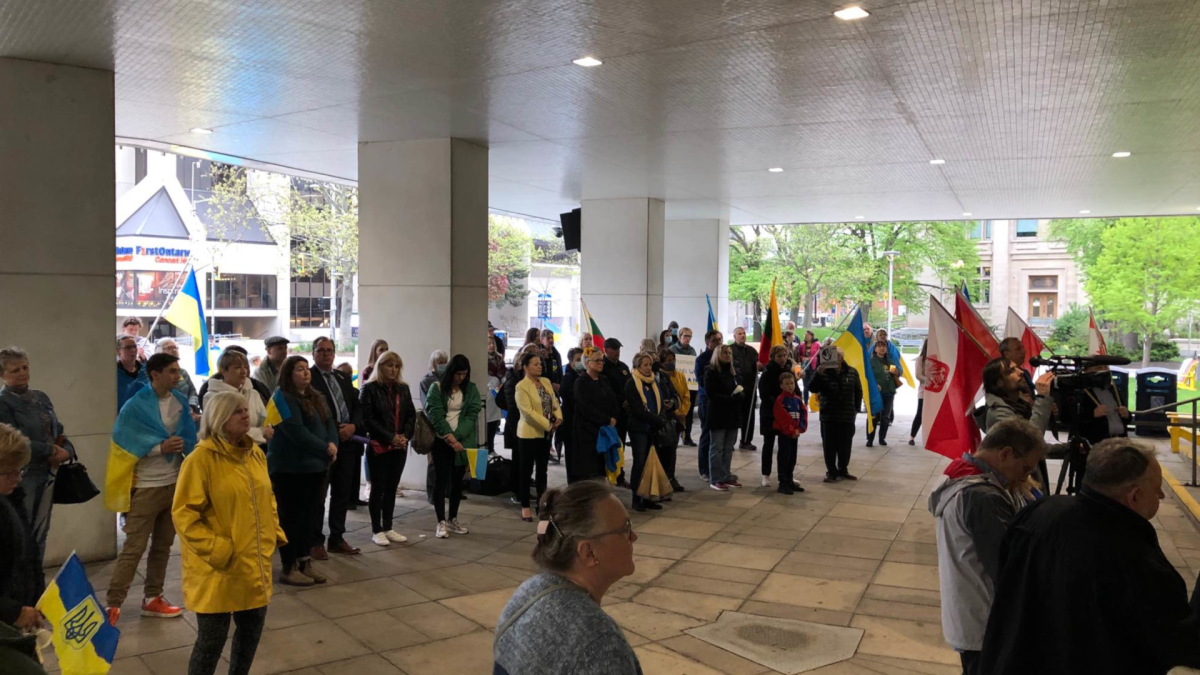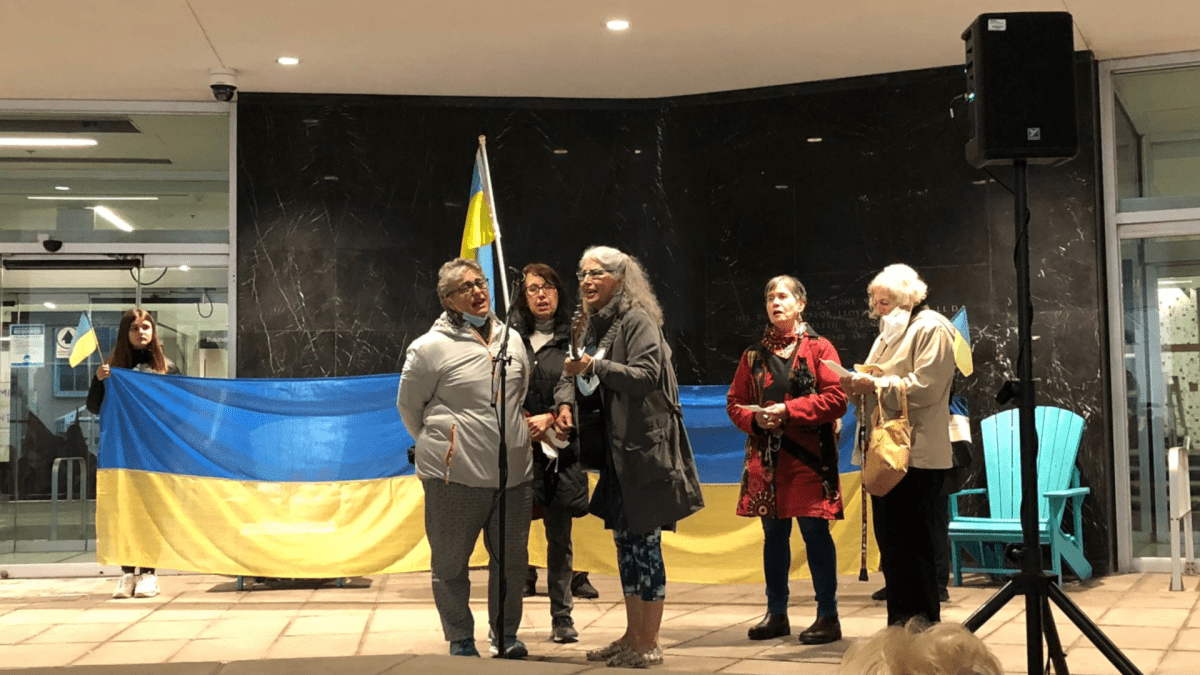Over 100 Ukrainian refugees have arrived in Hamilton in recent weeks and are living with family, friends and “host families,” according to a city report.

A humanitarian crisis response team, created to coordinate local settlement efforts, says more than six million Ukrainians have fled their country since January due to the ongoing conflict with Russia and that an estimated 28,000 Ukrainians have arrived in Canada, according to latest figures by the Immigration, Refugees and Citizenship Canada (IRCC).
The Hamilton Ukrainian Humanitarian Crisis Response Team (HUHCR), comprised of community organizations specializing in settlement, told councillors at a general issues committee meeting that there will be more with second migration wave expected to happen soon.
Working groups specializing in health services, housing, education, child care, and social assistance are just some of the support sectors currently available to incoming refugees offered by the HUHCR collaboration.
Bonnie Elder, the city’s director of Ontario Works and the Hamilton-Ukrainian humanitarian crisis response operations lead, told councillors that direction for refugees and those in the community wanting to help has been consolidated to the city’s website to alleviate confusion.
“A lot of times what happens with such a large response that we have a lot of people wanting to do a lot of things, which is great, and we just want to try to keep it as coordinated as possible so we’re not tripping over each other to get to be able to provide support for people,” Elder said.
Supporters gather for solidarity vigil for Ukraine at City Hall
Supporters and members of Hamilton’s Ukrainian community showed their support for victims of the war during a vigil at City Hall on Wednesday night.
The vigil, organized collaboratively by the Ukrainian Canadian Congress, the Hamilton Jewish Federation and the Canadian Polish Congress, had several key speakers along with newcomers who have just fled the war.
Speakers included Father William Makarenko of St Vladimir’s Ukrainian Orthodox Cathedral, who called on those present to raise candles and phone lights in a symbolic display of dispelling the darkness.
“We are all of one family. We have to manifest that today, if not every day. This is a vigil, a prayer vigil, to ask for God’s mercy,” Makarenko told supporters.
Mary Holadyk, vice president of the Ukrainian Canadian Congress of Hamilton, says groups wanted to come together and show support for the many Ukrainians in the city.
“We have a lot of Ukrainians in Hamilton with family still who are there,” says Holadyk, who also has family in Ukraine, “some of whom have been displaced and are now in Poland.”
READ MORE: Canada has opened its doors for war-ravaged Ukrainians. Does it have the capacity?
The United Nations refugee agency (UNHCR) estimates more than six million people — mostly women and children — have already fled Ukraine since the start of the conflict on Feb. 24, with neighbouring countries in eastern Europe opening their doors to welcome the displaced civilians.
Many Ukrainians applying to come to Canada as Russia’s invasion of their country drags on are doing so as an “insurance policy” and a “backup plan,” according to Canada’s immigration minister.
In an interview Sunday with Global News’ The West Block, Sean Fraser said more than 100,000 applications have been approved from among the roughly 200,000-large inventory. Yet he said it’s difficult to predict how many Ukrainians will actually come to Canada either on a temporary basis or to settle permanently.
“We are finding … that a lot of people who are applying to the program are taking out a special authorization for emergency travel on a speculative basis, whether they have plans to travel in the near future or not,” Fraser said.
- Canadian man dies during Texas Ironman event. His widow wants answers as to why
- ‘Sciatica was gone’: hospital performs robot-assisted spinal surgery in Canadian first
- Honda’s $15B Ontario EV plant marks ‘historic day,’ Trudeau says
- Several baby products have been recalled by Health Canada. Here’s the list










Comments